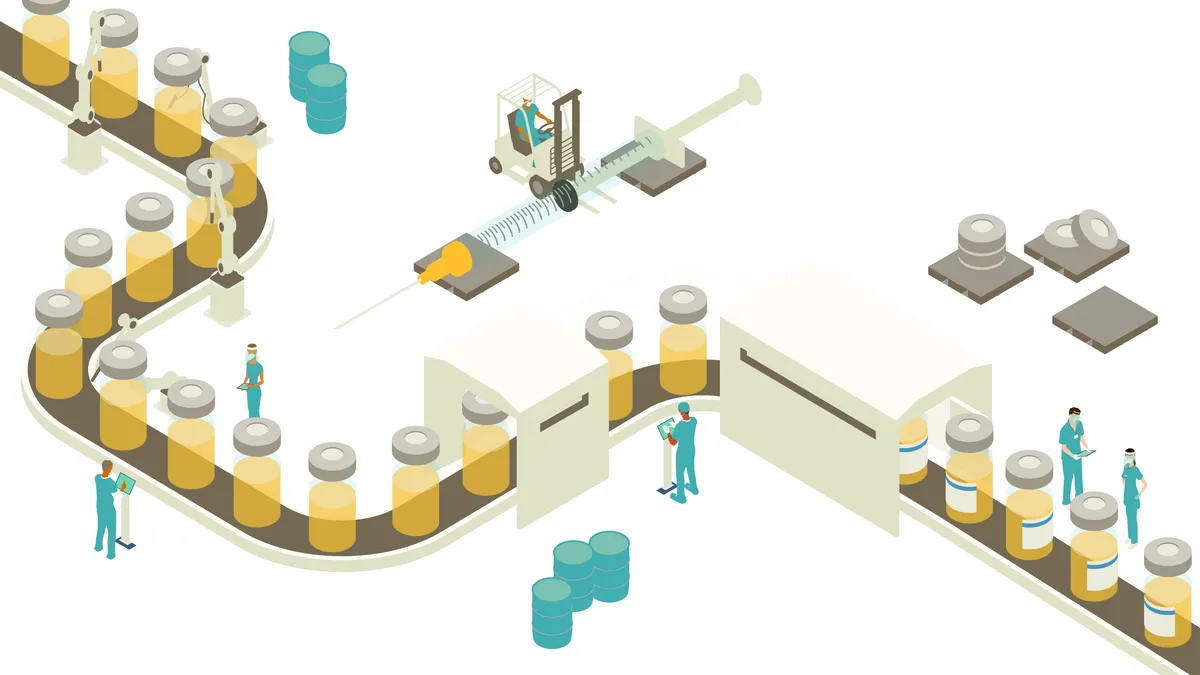Amyloid-beta (Aß) has long been a focus of Alzheimer’s researchers, but Acumen Pharmaceuticals is hunting a more specific form of the species than others in the space. The company says the approach could produce a drug safer than many other leading Alzheimer’s candidates, and early signals from the FDA show that the agency believes it’s on the right path.
In late October, Acumen announced that the FDA has granted a fast track designation to ACU193, its lead candidate in phase 1 testing for patients with early Alzheimer’s. Unlike drugs that take aim at Aß monomers and plaques, Acumen’s novel monoclonal antibody targets toxic soluble Aß oligomers (AßOs), which the company said in a statement “have been found to interact with synapses of brain cells called neurons … ultimately leading to cell death.”
“It’s reasonable to presume that oligomers are ever-present in the early stages of Alzheimer’s — even when patients are pre-symptomatic,” Daniel O’Connell, Acumen’s president and CEO said. “They are a persistent part of the disease and could be there even before plaques are established.”
Virginia-based Acumen was founded by three researchers who O’Connell said were among the first to establish AßO as a potential target for Alzheimer’s due to its unique biological properties.
“It is a distinct target with a more toxic profile,” O’Connell said. “In contrast to a variety of other methods in Alzheimer’s drug development, these oligomers have been shown to bond to neurons connected to memory loss and cognitive function.”
Aside from its unique pathology in Alzheimer’s, O’Connell said ACU193 could have several chief advantages over other drugs in the space.
Better safety — and the hope for something ‘remarkable’
ARIA, which stands for amyloid-related imaging abnormalities, is a safety risk that’s dogged emerging Alzheimer’s treatments.
Last November, Biogen said it was looking into the death of a 75-year-old patient who died from ARIA while taking the company’s FDA-approved Aduhelm. Most commonly, ARIA causes brain swelling and associated symptoms such as headache, nausea and confusion — but it can also trigger micro-bleeding in the brain.
And last week, whether or not a brain bleed that led to the death of a patient taking lecanemab, an Alzheimer’s treatment the company is developing with Biogen, could have been linked to ARIA.
Because ACU193 doesn’t target amyloid plaques directly, O’Connell said the drug carries a lower risk of ARIA.
“With Aduhelm, the aggregate rate of ARIA is about 35%. Part of the controversy for Aduhelm was the fear that in practice with real-world medicine, for patients with severe cases of Alzheimer’s, ARIA is really consequential,” O’Connell said. “ARIA leaves room for improvement in Alzheimer’s drug development and that’s where ACU193 is headed.”
“In contrast to other methods in Alzheimer’s drug development, these oligomers have been shown to bond to neurons connected to memory loss and cognitive function.”

Daniel O’Connell
President, CEO, Acumen Pharmaceuticals
Acumen’s phase 1 trial of ACU193, dubbed Intercept-AD, includes about 60 patients with mild cognitive impairment and is designed to assess safety and proof of mechanism. Although the study is not designed to test the drug’s efficacy, O’Connell said Acumen will administer a computerized battery test to patients about once a week for the duration of the trial that will track standard cognitive measures. Considered a “digital biomarker” approach, O’Connell said the computerized tests have the ability to pick up on subtle memory and cognitive-related changes. He doesn’t expect that Acumen will be able to report efficacy results based on this small study — but would be thrilled if it could.
“The computerized battery test is in there just in case there is an acute effect we can pick up on,” he said. “And if it did — that would be remarkable.”
The road ahead
As part of winning the fast track designation, Acumen will be in closer contact with the FDA on progressing ACU193 through its clinical trials.
“The FDA sees its role as trying to facilitate getting treatments to patients — especially given the magnitude of Alzheimer’s disease,” O’Connell said.
O’Connell said the company has not committed to any “precise timelines” for its development, but that part of its plan is to combine phase 2 and 3 studies together.
Meanwhile, the company is keeping a close eye on other developments in the Alzheimer’s space to guide its own approach to advancing ACU193. While watching the many controversies surrounding Aduhelm play out, O’Connell said the company took particular note of the blowback surrounding Biogen’s initial price tag of $56,000 annually for the drug.
“We learned and adapted from watching that situation,” he said. “We want to maintain our laser focus on patient benefit and addressing unmet needs while ensuring the science and data can support ACU193’s value proposition.”
And when Biogen and Eisai announced positive late-stage results for lecanemab in September, O’Connell said the results were “exciting” for Acumen because the drug is more analogous to ACU193 than Aduhelm.
“(Lecanemab) targets plaques but also soluble oligomers and protofibrils, and based on their findings, it looks like it has potentially better efficacy and lower rates of ARIA,” O’Connell said.
And like many others in the Alzheimer’s space, O’Connell said it’s going to take multiple drug development successes to make a more meaningful impact for patients.
“There won’t be a single cure in the foreseeable future and patients will likely get the best benefit from a combination of multiple products,” he said. “That’s where the field needs to get to in the next five to 15 years.”





















